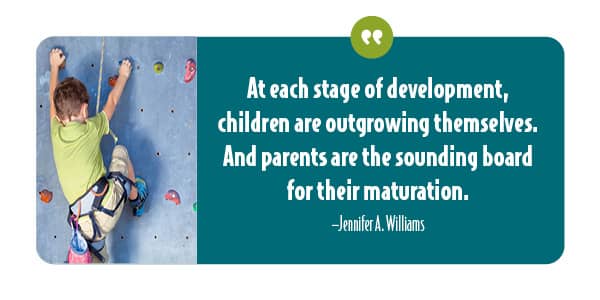In today’s modern world, how do we inspire children to learn? Why bother when they can just ask Siri or scribble a question into an AI app—and Voila!
These influences negatively impact our kids' motivation. To successfully navigate the effects of social media, screen addiction, and passive entertainment, it’s imperative our children's brains stay fit and they retain the motivation to learn.
That’s where you come in.
And where the growth mindset shines. It’s the internal motivation that urges us to learn and become better every day.
Estimated reading time: 7 minutes
 Heartmanity is proud to partner with outstanding companies and products that we recommend, so this post may contain affiliate links. As an Amazon Associate, I earn from qualifying purchases at no cost to you. You can read our full disclosure here.
Heartmanity is proud to partner with outstanding companies and products that we recommend, so this post may contain affiliate links. As an Amazon Associate, I earn from qualifying purchases at no cost to you. You can read our full disclosure here.
Table of Contents: Jump to what you think will be most helpful.
A Growth Mindset versus a Fixed Mindset for Kids
Parent Alert: How to Spot a Fixed Mindset
The Downside of the Fixed Mindset
What Is a Growth Mindset for Kids?
An Example of a Growth Mindset in Children
The Benefits of a Growth Mindset
Highlights of the Growth Mindset by Carol Dweck
5 Ways Parents Can Help Children Develop a Growth Mindset
Conclusion
Frequently Asked Questions
A Growth Mindset Versus a Fixed Mindset for Kids!
Every parent I've ever talked to or coached wants their children to build confidence and do well in school. Some might even nudge or “push” their children academically.
However, one of the most vital elements of learning is excitement. When children are excited to learn, you’ll see their eyes light up, or they are engaged and ask a lot of questions. Those are also indicators of a growth mindset.
But, when it’s the opposite—and your child seems dismissive or uninterested, they might be operating from a fixed mindset. Therefore, it’s essential to understand:
- How to spot a fixed mindset.
- What a growth mindset is.
- Ways you can help your child develop a growth mindset.
- Questions to ask your child that encourage a growth mindset.
So, what’s the balance? How do we support learning; encourage but not nag?
First, it’s crucial to identify the red flags—the signs that indicate your child may need more support or forming a negative self-concept.
If you'd like support to help your young child (PreK to Grade 1) develop and thrive, try Brain Thrive to give them an added advantage!

Parent Alert: How to Spot a Fixed Mindset in Children
Before you can zero in on the qualities of a growth mindset, it’s helpful to identify signs of a fixed mindset.
A fixed mindset is a black-and-white way of thinking—you either got it or you don’t!
We can spot a fixed mindset by its can’t attitude. Learning more or taking on challenges isn’t a top priority because of the belief that doing so is useless. What do I mean by this statement?
A fixed mindset is believing that your effort does NOT influence your results.
A child or adult with a fixed mindset believes because IQ cannot be changed, that it’s a done deal. You were born with smarts… or NOT. There’s no point putting in effort; you need to accept yourself as the way you are.
Children with a fixed mindset can fall victim to negative self-talk. When they label themselves “bad at math” or “easily distracted,” or "clumsy" they may actually believe it enough to act that way.
An easy way to see this play out is through Sarah’s 15-year-old son, Jake.
Jake’s a great kid, and he’s popular, too. Sarah and her husband adore him, and there isn’t a single sport where he doesn’t excel!
But he’s never been great at math and he's struggled with it since elementary. His parents have already accepted it, and so has Jake. They even joke about how he’s not going to be an accountant or ever work for NASA.
When he started high school, Jake made little effort in math despite acing every other class. His assignments aren’t turned in. His exams have more X’s than checkmarks. When report card season rolls around, his grade plummets to the lowest in the class.
Sarah’s remark: “Jake’s just not good at math, so why stress him out?”
Phrases like “I can’t do it” or “This is hard” indicate that a child could be stuck and unable to perceive the problem from a different angle. However, some children have a natural gift and put little effort into achieving A’s. They can also be trapped in a fixed mindset but skating through academics. Don't let doing well fool you.
Many parents fall into the trap—and myth—that praise builds healthy self-esteem in children. Turns out, it needs to be the RIGHT kind of praise.
Typically, parents say things like "You're so smart" "You're a natural artist" or "What a talented young man/woman you are!" Wow, a lot of pressure to live up to! Unfortunately, when we praise in this manner, we are only highlighting fixed traits: intelligence, creativity, and talent. What we're NOT giving the child is encouragement for effort, perseverance, practicing a skill until mastered, or completion! And these are the key ingredients for building a growth mindset.
The Downside of the Fixed Mindset
After understanding the components of a fixed mindset, it's easy to rack up a hefty list of cons. Until recently, we didn't even realize there was such a thing! We just thought a child had a bad attitude.
A child with a fixed mindset:
- Often shirks from challenges.
- Can deter a child from having compassion for others.
- Tends to give up easily.
- Hides their mistakes.
- Refuses to take on a new skill.
- Believes that high grades make them smart.
- Accepts poor performance, low grades, or bad experiences as their "norm"
The way to ‘fix’ a fixed mindset is through developing a can-do attitude.… Introducing the growth mindset.
Let’s look at ways to boost your child's mindset and set them on a course toward success and empowerment.
Related Reading: A Fixed Mindset Versus a Growth Mindset.
What Is a Growth Mindset for Kids?
A mindset is the way we perceive our experiences. A mindset is a belief that influences our thoughts, emotions, and behaviors, which shapes our attitudes toward ourselves and impacts what is possible in the future.
Simply put, a growth mindset is a way of thinking that encourages effort and persistence. Its flexibility, determination, and the willingness to try make this approach fertile ground for learning.
We’ve already confirmed that Jake was stuck in a fixed mindset because he keeps brushing math class aside. But, let’s look at Jane’s daughter, Amy: A great example of a growth mindset developing.
Example of a Growth Mindset in Children
She is not as old as Jake; Amy’s still a bright-eyed six-year-old. She can mix colors and read Dr. Seuss with the best of them. Her problem? Well, adding numbers is a bit harder than everything else.
Of course, Amy vents to her mom that she doesn’t like math as much as art or recess. But that doesn’t stop her from talking her mom’s ear off about what she learned today… and what she wants to learn tomorrow.
When it’s time for math class, Amy asks questions and raises her hands—even when unsure if her answer is correct. Amy believes that she can only get smarter if she keeps trying, which Jane doesn’t doubt a bit. At the rate she’s going, it’s only a matter of time before it just clicks for her!
Instilling a flexible mindset that loves learning can make a difference in your child’s success. With some guidance and reinforcement, your child can learn to approach life with positivity and possibility.
|
This Growth Mindset Workbook or Growth Mindset Activities will give your children practice to problem-solve, think outside the box, and develop thinking skills. For teens, this Growth Mindset Workbook for Teens will stretch their mind, give them practice in new ways of thinking and the skills for self-regulation, which are so important at this stage of development. |
The Benefits of a Growth Mindset
Many parents don't realize how amazing a shift in a mindset can be for themselves and their children. Take a look at this list of benefits below.
- Amplifies your child’s desire to learn.
- Improves their problem-solving skills.
- Makes learning a more enjoyable experience.
- Usually results in better grades in school.
- Encourages them to set goals and priorities as they grow older.
- More likely to persist and persevere during difficulty.
- Better overall mental health.

Highlights of a Growth Mindset by Carol Dweck
Who better to highlight what a growth mindset entails than the very person who coined the term!?
Renowned Psychologist Carol Dweck’s Ted Talk, "The power of believing that you can improve," highlights the stark difference between growth and fixed mindsets for young children.
Dweck set out to challenge a group of 10-year-olds! In doing so, she gave them all problems that the average 10-year-old might have difficulty solving.
Those with a fixed mindset seemed to throw in the towel before making any valiant attempts. According to Dweck, they ran away from difficulty! She mentions that these children were “gripped in the tyranny of now.” They were so preoccupied with their current failure that they couldn’t see themselves solving the problem in the near future.
But, those with a growth mindset approached the problems positively. They recognized that it was “a challenge” and endeavored to solve it anyway. When they failed, they quickly bounced back by trying again after acknowledging the error. Their growth mindset gave them the confidence to tackle the problem despite failing the first time.
Along with confidence, children with a growth mindset tend to have better resilience, creative thinking and problem-solving skills. These qualities get stronger with age, so getting them started as early as possible is crucial.
How Parents Can Help Their Children Develop a Growth Mindset
Cultivating a growth mindset is an adventure! Along with teaching your child how to pursue knowledge, you can help them view challenges differently and learn to look forward to challenging themselves.
To encourage a growth mindset in children, we recommend the following:
- Use affirmative language
- Teach them the value of learning
- Avoid punishing your child for failures
- Encourage them to be mindfully positive
- Nurture your child’s strengths and successes
Let's go into each one of the above points more thoroughly.
Use affirmative language.
Be mindful of the words you use, especially when your child is struggling with a new challenge. For example, saying, “I also did bad in math,” may help them feel understood, but it doesn’t convey a positive outlook! Your child could interpret this comment as meaning they should accept a low grade, just like you did. Instead, affirm them with phrases like “You’ll get better in no time” or "Sometimes mastering a skill takes effort and persistence." Or share how you overcame the challenge with effort!
Teach children the value of learning.
The rise in AI tools and smartphones has enticed children to prioritize getting the answers quickly instead of learning the material. They may find it easier than hitting the books, reading the material, or getting their homework done.
A growth mindset teaches them to enjoy solving their problems, joy in the discovery process, and finding the answers independently.
Avoid shaming or punishing your child for failures.
Mistakes, errors, and failures are a natural part of learning. Treat them as ordinary—and healthy—as getting a drink of water. When your child admits they fell short, they acknowledge their mistake. Instead of dwelling on the mistake, walk them through HOW to think. They'll feel comfortable doing the same if they see you reacting or talking positively about it!
Encourage your child to be mindfully positive.
This tip ties in with choosing your words carefully. You need to show them that what they think of themselves either helps or hurts. And that there’s more success awaiting them in the future if they continue working steadfastly and continue to learn better.
Help them to think differently by adding “yet.” By adding this simple word, you can remove room for doubt from their heads. For example, “You don’t get it… YET” or “It doesn’t make sense… YET." Or, "You haven't mastered it... YET!"
Now, it sounds like an entirely different thought, right?
Nurture your child’s strengths and successes.
An easy way to show the relationship between hard work and growth is by focusing on your child's accomplishments. Make it clear to them that their successes are worth celebrating. There are plenty of ways to celebrate and nurture your child and their efforts. Here are a few:
Ways to Nurture Your Child's Strengths
- Congratulate them for how much effort they applied to a problem.
- Attend their sports and events. Highlight what they did well.
- Affirm them when achieving a goal or overcoming an obstacle.
- Spend quality time with them.
- Be present and empathize with them.
- Talk to them about what you see as their strengths.
- Ask your child what they pride themselves in the most.
- Encourage them to stretch, challenge, and develop their abilities.
- Plan a special date with your child to celebrate a win.
If we pepper these actions throughout the week, by the end of the month, you've reinforced the growth mindset. Much of a child's self-esteem building blocks are derived from their parents' responses so make good use of them!
Imagine how powerfully these actions can impact their emotional development! And if you make a habit of doing things that nurture and build a growth mindset, you'll be preparing them for the world.
The Parallel Between Self-Motivation and Your Child's Mindset
While rewards are great; being self-motivated creates a more fulfilling result. (Rewards like a trophy or a good grade reinforce external motivation, not internal motivation!)
Self-motivation and intrinsic motivation are cut from the same cloth. Intrinsic motivation is motivation that comes from within. It includes accomplishing things for one’s own personal satisfaction.
For example, if your child wins the local spelling bee, they would also accept its accolades and ribbons. These are all external awards. They come from sources outside of them. What’s intrinsic about winning the spelling bee is their pride and excitement, knowing they worked hard, gave it their all, and had a positive result. Their efforts impacted the outcome!
Motivating themselves makes them less likely to worry about what their peers think of them. This ability is a huge advantage, especially in the preteen and teenage years. Peer pressure has less influence when a child's fulcrum is internal, rather than external. They will also be able to look beyond external gratification (like awards) and focus on what success looks like to them personally.
Everyone loves compliments and positive recognition, but only a few have an inner voice to speak kindly to themselves. Teaching children how to motivate themselves intrinsically is an excellent way to nurture them. It encourages them to develop their inner cheerleader—when you’re unable to be there to cheer them on.
Ways to Encourage Your Child to Motivate Themselves Intrinsically
Here are some ways to encourage your child to motivate themselves from the inside!
- Track their progress (if it’s a long-term goal);
- Remind them that starting out is sometimes the hardest part;
- Write down the ‘pros’ of accomplishing that goal;
- Set fun rewards for when they accomplish the goal;
- Break their goals into smaller, actionable milestones and
- Date a letter to their ‘future self’ about how they’ll feel once it’s through.
Self-motivation helps children to improve their growth mindset. With this mindset shift, they learn the skills necessary to thrive in situations that could potentially demotivate them, like a bad grade or a rough day.
For more on intrinsic motivation, check out this blog post: How to Get Motivated: Intrinsic vs Extrinsic Motivation.
5 Growth Mindset Questions to Ask Children
A growth mindset for children is characterized by how they view and overcome challenges. With these tips in mind, your child’s well on their way to a more successful life.
To facilitate a growth mindset in your child, ask the right questions that invoke introspection. Here are a few growth mindset questions to ask children:

“What does the hard part look like?”
This question helps them pinpoint the issue and acknowledge what’s challenging for them.

This approach reveals their thought process and brings up any feelings of doubt or (best-case scenario) confidence.

“What could you say that would be more encouraging?”
These viewpoints are tied to intrinsic motivation. When your child feels discouraged, they need to be able to encourage themselves.
 “Do you remember how you figured out XYZ?”
“Do you remember how you figured out XYZ?”Reflection on a past challenge and success reminds your child that they can overcome this present one.
 “What are your favorite ways to overcome challenges?”
“What are your favorite ways to overcome challenges?”Instead of offering a solution, encourage your child to reflect on past successes. If your child usually needs to step away from the project for a few minutes, ask them if it would help.
Additional tips: “Why’s that? Or, why not?” This follow-up can be used for any previous question, which is helpful for more clarity.
Consider reaching into your parenting arsenal for these questions whenever your child is in a pickle or needs help shifting their perspective!

Why Should You Encourage a Growth Mindset for Your Child?
A growth mindset nudges children to join clubs, make friends, study hard and try new hobbies—all great things!
Some of us can identify growth mindset examples in our children, like their willingness to learn and their resilience to move past their failures.
A growth mindset comes naturally to some children; the same is true with a fixed mindset. If left unaddressed, a fixed mindset may cause children to avoid new experiences, and cruise through life doing things that only come easy to them.
To recap, here’s how to promote a growth mindset in your children:
- Use affirmative language.
- Teach them the value of learning.
- Avoid shaming or punishing your child for failures.
- Encourage them to be mindfully positive.
- Nurture your child’s strengths and successes.
The goal is to build new EQ muscles and learn how to shift a perspective when it doesn’t support us or our goals. Good things come from being emotionally intelligent and empowering your child to look at themselves and the world differently. Then they can impact their own success!
One of your jobs as a parent is to guide them on the right path to their greatest potential. Here’s a recap of growth mindset questions to use:
- “What does the hard part look like?”
- “How would you go about solving this dilemma?”
- “Is what you’re saying to yourself encouraging or discouraging?”
- “What could you say that would be more encouraging?”
- “Do you remember how you figured out XYZ?”
- “What are your favorite ways to overcome challenges?”
- “Why is that? Or, why not?”
Developing a growth mindset in children is an ongoing process, but it’s one with huge payoffs! If you’d like some hands-on guidance on teaching children about growth mindset, reach out to us at support@heartmanity.com.
Conclusion
We can all agree that learning is important. Learning HOW to learn and being motivated to learn is critical.
You as a parent have the power to help your child build an invincible security within themselves. Having a focus on how we feel about ourselves rather than what others think of us allows us to relax and put forth our best.
Giving your children the raw ingredients needed to excel and persevere when things get tough will serve them mightily their whole lives!
Frequently Asked Questions
How do you explain a growth mindset to a child?
Our brains are pliable; they change and adapt through our experiences and learning. Just like adults, simple facts are very empowering to understand a concept—and to get buy-in with our children to know just how essential learning is!
When children understand that their brains can grow by use, it's easier to grasp the importance of a growth mindset.
Every day our brain's neural pathways change by WHAT, HOW OFTEN, and HOW INTENTLY we put our attention on something. When kids comprehend that they can impact their experience and ability to learn, then it is much more likely to know it's possible to improve with effort—their effort.
Just like our muscles get stronger by exercising, the more we use our brains, learning and practicing a new skill makes you better! After all, the brain is a muscle and it needs exercise!
Therefore, our effort, focus, and determination in trying new things, and building skills is not only possible, it's probable!
Here's a helpful video to understand how the brain grows.
Recommended reading: The Growth Mindset versus Fixed Mindset: Learn How You Can Develop a Growth Mindset!










